 It was only back in March when I said I was done writing about Ben Carson. It didn't take me long to break that promise and write about him again in April, figuring that that would be it for a while. But I never guessed that Ben Carson would be polling as high as he is at this point and be a serious contender for the Republican nomination. According to a recent NBC News article, Ben Carson Could Eclipse Donald Trump at the Front of the GOP Pack, Carson is polling second among Republican candidates right now, and could potentially take the lead. Now, it's still early in the race, and a lot will happen before the GOP picks their candidate, so I'm taking these current polls with a grain of salt. Also, with as bad as some of the Republican candidates are, Carson's not the worst option on the right. Still, I disagree with Carson on so many topics that I just can't get behind him.
It was only back in March when I said I was done writing about Ben Carson. It didn't take me long to break that promise and write about him again in April, figuring that that would be it for a while. But I never guessed that Ben Carson would be polling as high as he is at this point and be a serious contender for the Republican nomination. According to a recent NBC News article, Ben Carson Could Eclipse Donald Trump at the Front of the GOP Pack, Carson is polling second among Republican candidates right now, and could potentially take the lead. Now, it's still early in the race, and a lot will happen before the GOP picks their candidate, so I'm taking these current polls with a grain of salt. Also, with as bad as some of the Republican candidates are, Carson's not the worst option on the right. Still, I disagree with Carson on so many topics that I just can't get behind him.
For this series, I've decided to go to Carson's own website, specifically the section, Ben on the Issues, and take a look at what he himself (or at least his website team) has to say. In places where his website is light on details, I've pulled in other sources. But note that I've addressed all the issues Carson felt strongly enough about to include on his site, so this certainly isn't a case of cherry-picking him at his worst. There were also two very big issues that he didn't address at all on the site, so I've also covered those using other sources.
To summarize this whole series up front, I disagree with Carson on just about every issue identified on his website, and in the two additional issues I addressed here. Granted, sometimes I did agree on the nature of a problem, but not with his proposed solutions, which in some cases would only make matters worse.
Because my responses to some issues are long enough to merit their own blog entries, I'm breaking this up into multiple posts. Today's entry is still a little long, but none of these individual issues were long enough or substantive enough to stand alone. Below is an index of all the issues covered in this series, indicating which ones are in this entry, and which ones are/will be posted in follow up entries (with links to be added as the entries are posted). You can click on any of the links to jump to that issue. The two issues marked with asterisks were the ones not addressed on his website.
In This Entry:
Follow Up Entries:
Abortion
Here's Carson's intro to this section, which I think sums up his position rather succinctly:
I am unabashedly and entirely pro-life. Human life begins at conception and innocent life must be protected.
I've discussed this on this site before, in the entry, Abortion, where you can read my opinion in much more detail, but I'll still say a bit here.
There are many liberals who see this issue differently from me, but I do think it comes down to balancing the rights of the developing human in utero with those of the fully human mother. But just because a clump of cells happens to have the right genetics and is alive doesn't make it a human being with rights. In fact, it's cheapening the value of all humanity to claim that a bunch of cells with no differentiation is fully human. A human being is much more than just genetics and metabolism. A person has a mind, an emotional life, feelings, thoughts. A newly fertilized egg has none of that, and even throughout most of its development as an embryo in the first trimester, it doesn't have a functioning brain and so doesn't have even the glimmer of what makes a human a human. I see absolutely no reason to privilege those cells over the rights of the mother supporting them.
As the embryo develops into a fetus and the brain begins to function, thoughts and feelings do begin to occur, so the rights of the fetus should begin to be considered. But it's still a gradual process, so the mother should certainly take precedence over the fetus in any discussion comparing the rights of the two, especially in those early stages (or more than two for multiple pregnancies). And there are many circumstances, such as genetic conditions like dystrophic epidermolysis bullosa (to pull an example from my other entry), that would result in severe suffering for the person that would develop from that fetus, that are legitimate reasons to perform abortions later than the first trimester, and even 'partial birth abortions' that the forced birth crowd try to demonize.
For a liberal who doesn't see this the exact same way as me and thinks it's entirely a bodily autonomy issue, here are two entries putting his arguments in verse.
Education
In recent years, there has been a troubling trend of the U.S. Department of Education increasingly trying to dictate how children are educated in our primary and secondary schools. This must stop and Common Core must be overturned.
Our education system must be run by involved parents and engaged teachers and principals. Any attempt by faceless federal bureaucrats to take over our local schools must be defeated.
Now, I can sort of understand this from a states' rights issue, for the people who interpret the Constitution narrowly and don't like the Commerce Clause justification for the Department of Education. But just imagine we were to re-write the Constitution in this day and age. Is there any reason why the federal government shouldn't be involved in education? Americans move around a lot. The Census bureau even keeps track of it as domestic migration. It's kind of nice to be able to move from one school district to another, even across state lines, and know that your child can transfer relatively seamlessly academically. Or that your child can apply to any university in the U.S. they want, with the university having confidence in the education your child received. The only practical way to do this is with nationwide standards. Sure, there should be room for local school districts and individual teachers to adjust their teaching methods to their students, but a nation wide Common Core set by the Department of Education makes a lot of sense.
I've written quite a bit about the state Board of Education here in Texas and all the shenanigans and controversy they've been associated with, which is probably a big part of the reason why I'm not particularly sympathetic to the argument that only state and local governments should have control over education with no oversight from the federal government. It allows idealogues to abuse their positions and damage our children's education. For a listing of nearly all the times I've written about education down here in Texas, go to the very end of the entry, Midterm Election 2014 - Fix the Texas Board of Education.
This is also related to another entry I've written, A Critical Examination of Ben Carson, Part 9 - Shoddy Scholarship, debunking Carson's claim of a dumbing down of modern day American education compared to a century ago.
Gitmo
Radical terrorists captured in countries all over the world must be detained safely while awaiting trial by military commission. Gitmo is, by far, the single best facility for this dangerous job.
Keeping Gitmo open is a critical element in our never-ending efforts to keep the American people safe from another cataclysmic terrorist attack.
The War on Terror is not a war in a conventional sense. There's no enemy government with whom we'll eventually sign a treaty to end hostilities, exchanging prisoners of war when it's all over. It is more a war on organized crime. But the groups are only loosely affiliated, and will go on fighting no matter how many leaders we kill. There's no end in sight to this 'war'. So, while there's justification for holding enemies prisoner without a trial during a conventional war, what justification is there in the War on Terror? Without a trial, how can we be certain they really are enemies, and not just people who were in the wrong place at the wrong time, or someone who looked the wrong way at a soldier having a bad day? How do we know we're not incarcerating innocent people? And how can we justify imprisoning innocent people indefinitely? Granted, Carson did say these people should be tried by military commission (though he's calling them all radical terrorists without any benefit of the doubt of innocent until proven guilty), but the history of Guantanamo is a stain on our nation's reputation.
This is related to Carson's most shameful position - his support of torture, which I discussed at length in the entry, A Critical Examination of Ben Carson, Part 8 - Torture. I won't summarize that entry here, other than to repeat how disgusting it is that Carson supports this type of depravity that goes against so much of what America stands for.
Healthcare
We need to re-establish a strong and direct relationship between patients and their physicians. For instance, I strongly support Health Savings Accounts (HSAs) which empower families to make their own decisions about their medical treatment. HSAs will also drive down health care costs while protecting patient choice and freedom.
Yes, the Affordable Care Act needs fixes to get it working right, but at least it's a start at universal health care. Carson's Health Savings Account proposal seems naïve. Here are the responses from a few health care experts quoted by Media Matters in the article, Health Care Experts Rip Ben Carson's "Near Worthless" Health Care Plan.
"For a person who has serious health problems or for a person who has a low income, a $2,000 health care savings account is worthless, or near worthless" said Timothy Jost, professor of law at Washington and Lee University who specializes in health care regulation and law. "It would not either allow them to buy health insurance or allow them to afford health care or anything other than very routine primary care and some medications."
And another:
"It's not really insurance," he [Jonathan Gruber, a health economics expert at the Massachusetts Institute of Technology] added. "It is leaving you self-insured for any risk above $2,000. The typical heart attack in the U.S. can cost about $100,000. This is typical of the poverty of ideas on the right on health care right now."
And one more:
Calling herself a "lukewarm fan" of the Affordable Care Act, [Carolyn] Engelhard [assistant professor of public health sciences and director of the Health Policy Program at the University of Virginia] added that "people who choose HSA's are healthier and have more money to put in their HSA's." But, she added, if you make $8 per hour "you don't have enough to pay your bills, let alone put extra money into an HSA. Just giving people an HSA and telling them to be smarter about spending is an overly-simplistic method. It won't work well."
I have a related entry, A Critical Examination of Ben Carson, Part 3 - Healthcare & Romanticizing the Past, as well as another previous entry on Universal Health Care.
Russia
President Putin must come to learn that there will be grave and serious consequences when Russia engages in naked aggression against other sovereign nations and free peoples. All options should remain on the table when dealing with international bullies such as President Putin.
I suppose that interpreted generously, that's fair enough. All options should remain open. However, it certainly does seem to be implying that perhaps the U.S. should have responded with military action against Russia. And if it really comes to it, that may be the only course of action left, but its a very, very drastic action. We went decades during the Cold War never directly fighting against the Soviet Union. I don't think we should be in too much of a hurry to get into a fight with Russia.
Israel
The United States of America has had a special relationship with Israel ever since we were the very first nation to recognize her creation. The depth of our unique bond with Israel has only strengthened over the years.
Not much to say on this. Israel is an ally of the U.S., and should be treated like other allies. The relationship is currently strained a bit, and the reasons for that should be dealt with diplomatically.
Climate Change
This topic wasn't covered on Carson's site, but it's one of the most important issues facing the world today, so I felt it was worth including in this discussion. In fact, the very omission of this topic on Carson's site is telling - how can you ignore something this important?
While I have much to say on this issue, I've actually already covered it in pretty good detail in a previous entry on Carson, A Critical Examination of Ben Carson, Part 5 - Global Warming. Basically, Carson doesn't accept the science on global warming. In a 2104 Bloomberg article he was quoted as saying, "You can ask it several different ways, but my answer is going to be the same. We may be warming. We may be cooling." In a separate op-ed, he wrote, "to use climate change as an excuse not to develop our God-given resources makes little sense", which seems to be implying that we should continue using fossil fuels at current rates. Statements like these are awful. The first reveals either a complete ignorance of science, or a willingness to put ideology ahead of facts, neither of which are acceptable for a president (his stance on evolution reveals a similar denial of science). The second statement is just a completely irresponsible course of action given the reality of climate change.
I've written several other entries on climate change:
---
That's it for today's entry. Stay tuned for coming entries dealing with more of Carson's stances on issues.
On to Part II - Second Amendment
Image Source for Ben Carson: Christian Post, Credit: Reuters/Jonathan Ernst
Updated 2015-09-21: Slightly reworded a few sections to read better and added a few more links.
 I've written quite a bit about Ben Carson on this site. It started off when he was much less well known, and was invited to be give the commencement speech at the local university, but with his rise in political popularity, it has expanded into two in-depth series and several more individual entries. So, to give one location with links to all of my Ben Carson entries, I've created this index. If I post more about him, I'll try to remember to add a link here.
I've written quite a bit about Ben Carson on this site. It started off when he was much less well known, and was invited to be give the commencement speech at the local university, but with his rise in political popularity, it has expanded into two in-depth series and several more individual entries. So, to give one location with links to all of my Ben Carson entries, I've created this index. If I post more about him, I'll try to remember to add a link here.
 September's more than two-thirds done with, and I just realized that I never did do my normal top 10 entry for August, so it's time to correct that.
September's more than two-thirds done with, and I just realized that I never did do my normal top 10 entry for August, so it's time to correct that.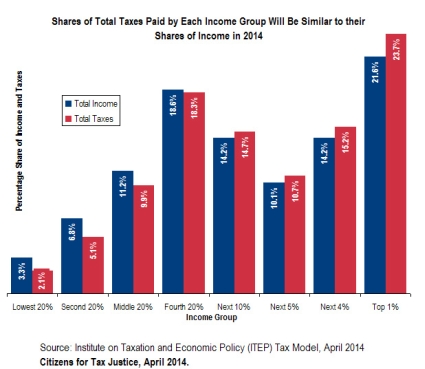
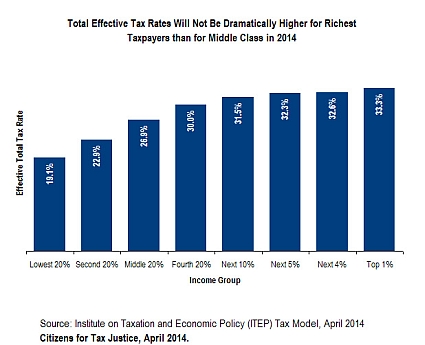

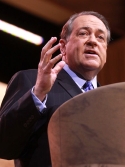 I recently received an e-mail forward that was originally put out by Mike Huckabee's campaign. It appears to be the same article as is on his website,
I recently received an e-mail forward that was originally put out by Mike Huckabee's campaign. It appears to be the same article as is on his website, 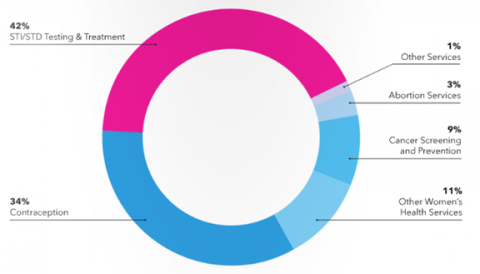
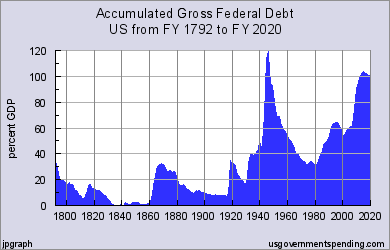
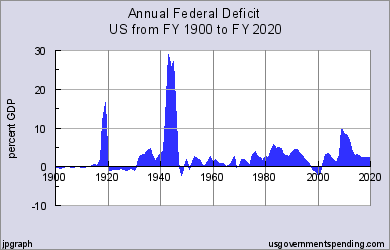
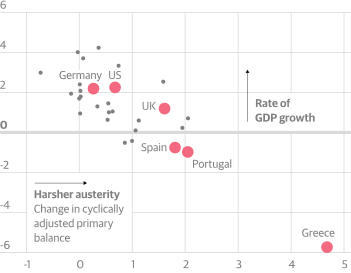
 For anyone who's been completely ignoring the news recently, Kim Davis is a county clerk in Kentucky who, despite the Supreme Court's recent ruling over marriage equality and in direct violation of a Federal District Court judge's order, refused to issue marriage licenses to same sex couples. Her appeals were denied by the Supreme Court (understandably), so it all came down to the district judge, David L. Bunning, on what to do with her. Figuring that a fine wouldn't solve the problem because too many supporters would help Davis come up with the money, Bunning actually put Davis in jail for contempt of court. If you're wondering why Davis wasn't just fired from her job for refusing to perform, it's because she's an elected official, and the only way for elected officials to lose their jobs is to be impeached or to resign. If you're wondering why she didn't just resign when she could no longer perform her duties as an elected official - good question. Anyway, while she was jailed, the judge met with deputy clerks from her office, and five of six agreed to issue licenses. Knowing that residents of that county will now be able to receive marriage licenses, the judge has agreed to release Davis from jail, provided she "not interfere in any way, directly or indirectly, with the efforts of her deputy clerks to issue marriage licenses to all legally eligible couples".
For anyone who's been completely ignoring the news recently, Kim Davis is a county clerk in Kentucky who, despite the Supreme Court's recent ruling over marriage equality and in direct violation of a Federal District Court judge's order, refused to issue marriage licenses to same sex couples. Her appeals were denied by the Supreme Court (understandably), so it all came down to the district judge, David L. Bunning, on what to do with her. Figuring that a fine wouldn't solve the problem because too many supporters would help Davis come up with the money, Bunning actually put Davis in jail for contempt of court. If you're wondering why Davis wasn't just fired from her job for refusing to perform, it's because she's an elected official, and the only way for elected officials to lose their jobs is to be impeached or to resign. If you're wondering why she didn't just resign when she could no longer perform her duties as an elected official - good question. Anyway, while she was jailed, the judge met with deputy clerks from her office, and five of six agreed to issue licenses. Knowing that residents of that county will now be able to receive marriage licenses, the judge has agreed to release Davis from jail, provided she "not interfere in any way, directly or indirectly, with the efforts of her deputy clerks to issue marriage licenses to all legally eligible couples". I remember being taught in my history classes back in my school days that the primary cause of the Civil War was slavery. But as I got older, I saw a lot more contrarian views that said it was about other issues, like states rights, tariffs, or other economic issues. This topic has come up a lot more recently with the
I remember being taught in my history classes back in my school days that the primary cause of the Civil War was slavery. But as I got older, I saw a lot more contrarian views that said it was about other issues, like states rights, tariffs, or other economic issues. This topic has come up a lot more recently with the  Last year, I wrote two blog entries about Eben Alexander,
Last year, I wrote two blog entries about Eben Alexander,